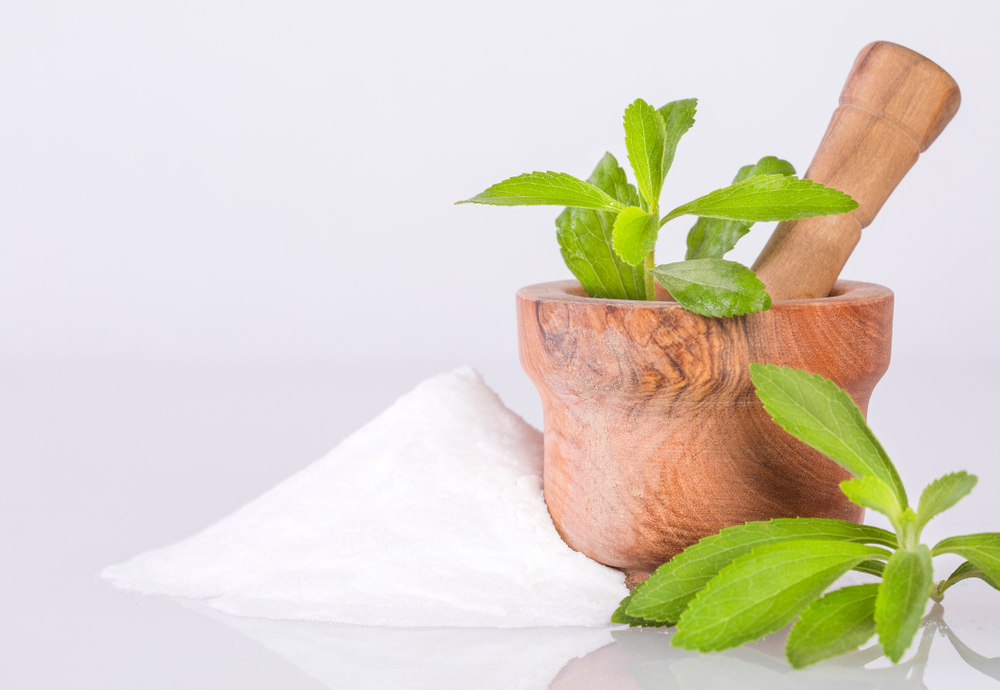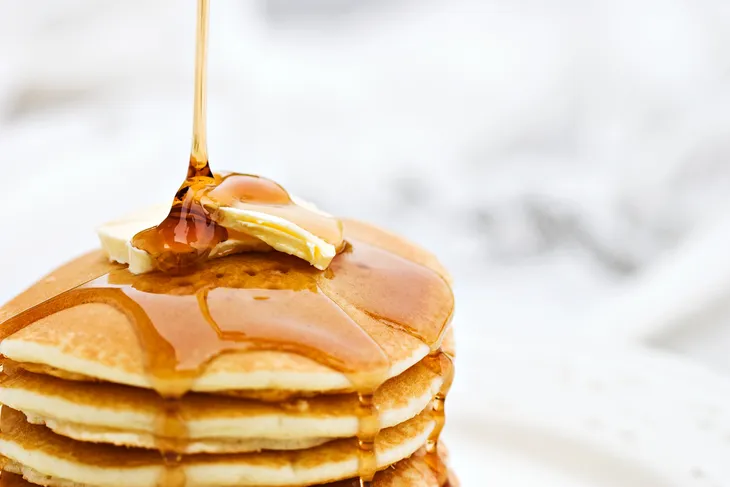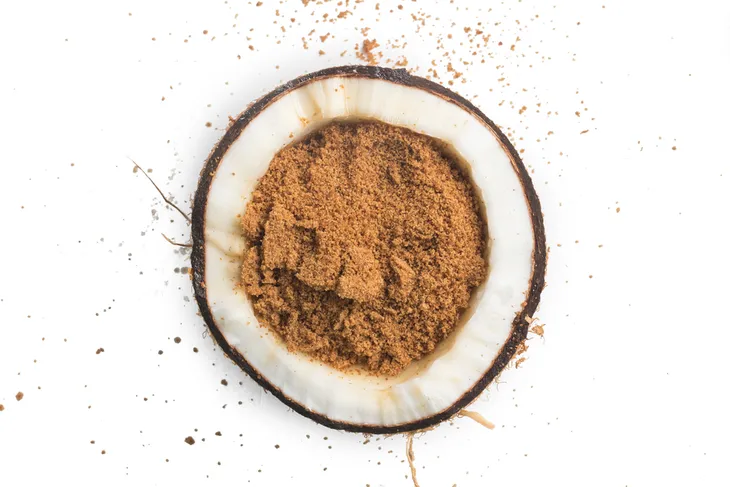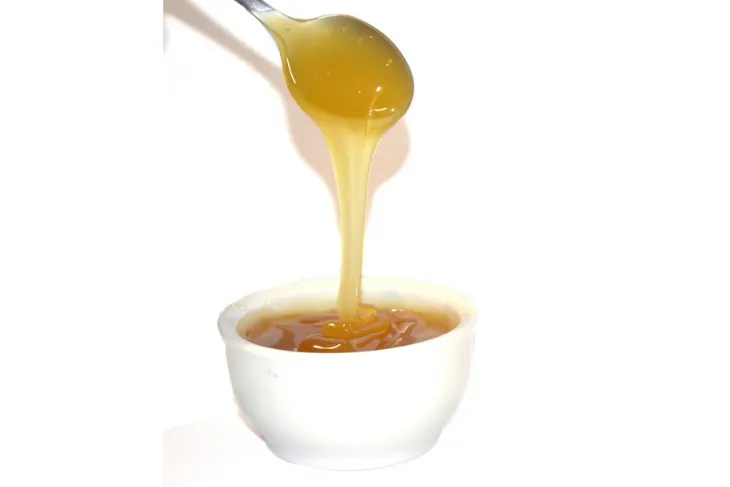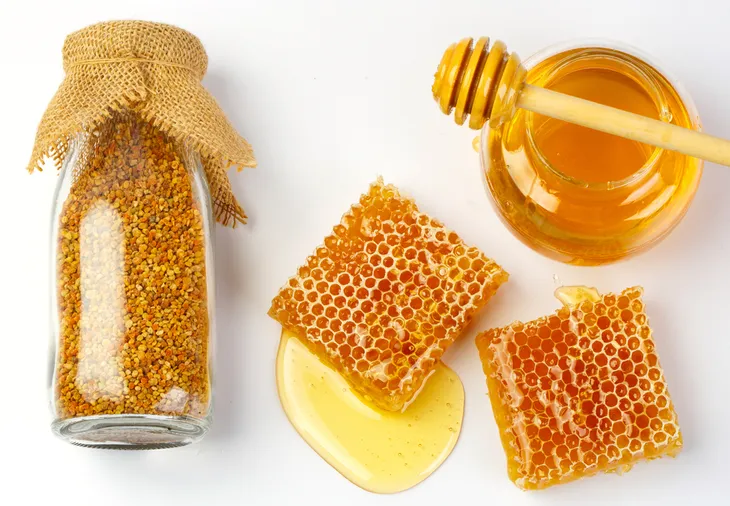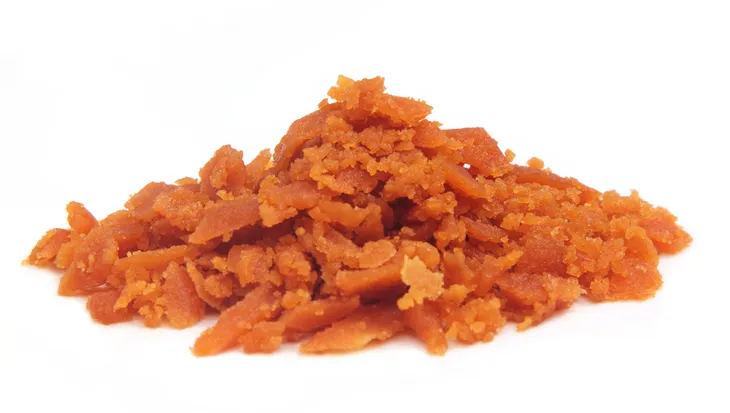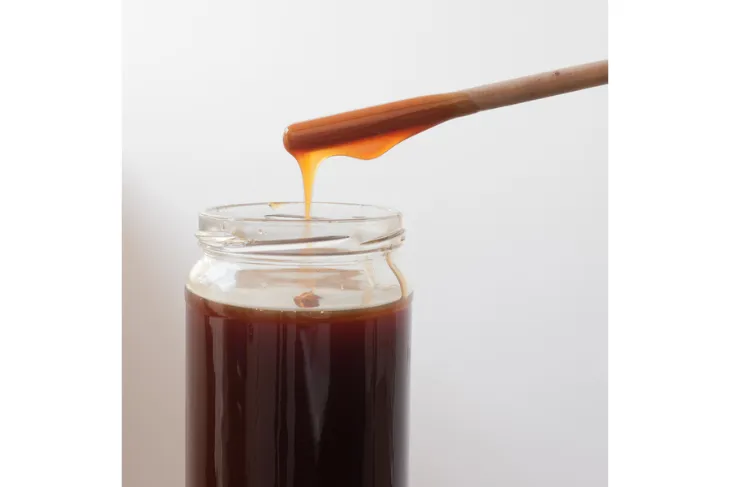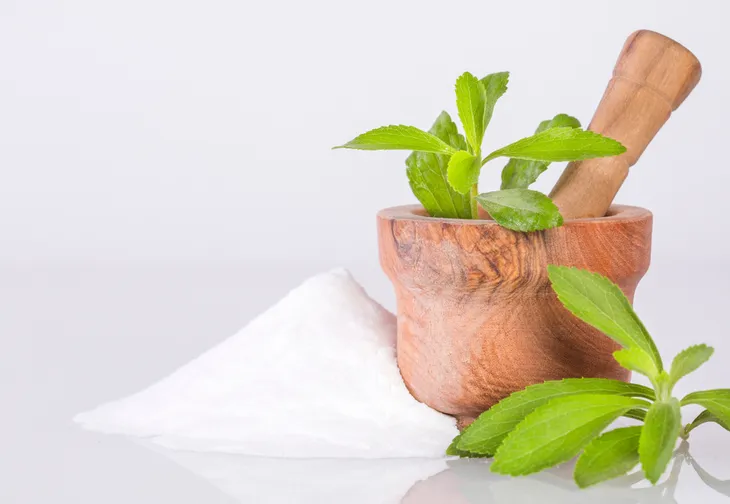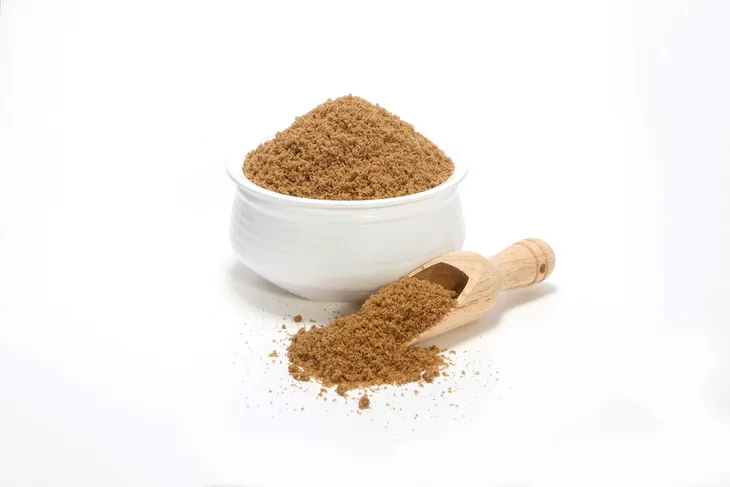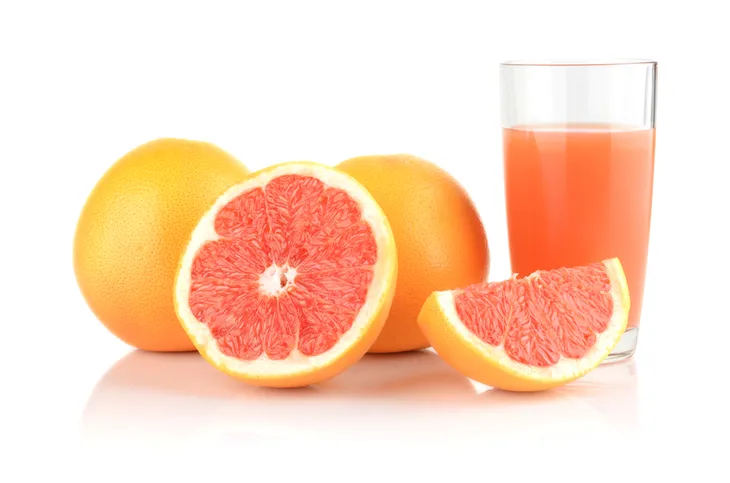There is so much talk in the health and wellness world lately about trends like the Whole30 diet, clean eating, and other nutritional hot topics. Many of these diets and nutritional regimens call for swapping refined foods for more natural products and one of the best places to start doing this is by swapping out refined sugars.
Most of us are overdoing it on sugar these days and should really be cutting back all together, in fact, the US Government Dietary Guidelines recommends limiting added sugar to just 10-percent of your daily calories. While it may take some time to wean yourself down to the government’s recommended levels, a great way to start is by substituting refined sugars like white and brown sugars for more natural alternatives like these 9 natural sugar alternatives…
Maple Syrup
This sweet amber-colored syrup is synonymous with all things Canadian as it’s derived from the sap of the maple tree. It has a distinctive flavor that many people describe as deliciously addictive and some of the benefits include the fact that it is 100 percent natural, contains no artificial colors or additives, and contains many beneficial minerals including potassium, calcium, sodium and copper.
Though maple syrup production requires the tree sap to be boiled, this is considered minimal processing making it an unrefined, all-natural sweetener. Maple syrup can be easily used in baking as a sugar substitute with minimal adjustments to the recipe.
Coconut Sugar
Coconut sugar is considered to be one of the most sustainable sugars due to the fact that the coconut palm trees produce 50- to 70-percent more sugar per acre, and use less than one fifth of the soil nutrients and water when compared with cane sugar. Coconut sugar is produced by heating and cooling of the coconut blossom nectar that is extracted from the coconut palm. The cooled nectar then forms a solid brick that is ground into the caramel colored granules that you find in supermarkets and health food stores.
Coconut sugar has a toffee-like flavor and boats several benefits over refined sugar including being low on the Glycemic Index, which means it has a slower release of energy preventing the highs and lows typically associated with refined sugars. It also contains twice the amount of iron, 4 times as much magnesium, and over 10 times as much zinc as regular brown sugar. Because coconut sugar comes in granular form, it’s easily substituted into recipes. Research regarding if coconut sugar is better is inconclusive. Unless you’ve already got it at home, it’s not necessarily a better choice, says registered dietitian Julie Ching.
Brown Rice Syrup
Brown rice syrup, or rice malt syrup, is a natural sweetener produced by hydrolyzing brown rice starch with natural enzymes. These enzymes help break the starch down into sugar. The liquid is then reduced by heating until a syrupy consistency is achieved.
Brown rice syrup is not as sweet as honey or agave nectar, but it is free of fructose, gluten and wheat free, and a suitable sugar alternative for vegans and vegetarians. Brown rice syrup is a mild sweetener, which works well when used in baking, enjoyed as a spread, or drizzled on pancakes or waffles. This syrup can also be used for cooking and sweetening beverages. However, this sugar lacks nutrients and is generally not common recommended.
Honey
Honey is one of the most popular natural sugar alternatives as it is unrefined, sweeter than sugar, and produced all around the world. Because honey is sweeter than white sugar, it does contain more calories, but you can use less of it.
Honey is also beneficial to health as it contains trace enzymes, vitamins and minerals, and has amazing antimicrobial, antibacterial, and antioxidant properties. It also works well as a sugar substitute in baking, cooking and sweetening coffee or tea. Because there is such a range of honeys available from around the world, each with a distinct flavor profile, there are endless options for uses and creativity in the kitchen.
Date Sugar
Date sugar is another natural sugar substitute that’s popular among raw food enthusiasts. That’s because there is no processing involved in the production of date sugar whatsoever. It’s simply made from dehydrating and finely grinding whole dates into a granular powder. Date sugar has a lightly sweet flavor with caramel notes and can be used in many applications that would typically call for brown sugar.
It is great sprinkled on fruits, cereal, yogurts, and muesli and works well in baked goods, though it’s important to note that because date sugar is simply ground dates, it does not melt into foods like other sugars would. This means that brown flecks may be present in your baked goods making them unsuitable for certain recipes and applications.
Barley Malt Syrup
Barley malt syrup is similar to brown rice syrup in that it’s produced by enzymes that convert starches to sugar. In this case, the grain that’s used is sprouted barley. It’s then cooked down until a thickened consistency is achieved. The resulting product is a dark brown syrup with a malty flavor that is lightly sweet, about half as sweet as honey.
Barley malt syrup is 100-percent naturally produced and contains no additives or artificial ingredients. It contains some vitamins and minerals and it’s also a source of soluble fiber. However, keep in mind that date sugar does contain a large amount of maltose, which is high on the Glycemic Index. For this reason, it is good to moderate the use of this natural sweetener.
Stevia
Stevia has quickly grown in popularity to become one of the leading natural sugar alternatives in North America. One of the primary reasons for this is the fact that it contains no calories. Stevia is desired from the leaves of the stevia plant, several species of which are native to parts of the Southern United States, but the most prized species is found in Paraguay and Brazil.
This no-calorie natural sweetener has caused big buzz in the food and wellness world and there is still much debate over its use and benefits. Some American companies have created branded forms of the sweeter, but the most beneficial form remains the pure ground stevia plant leaves. According to LiveScience.com, stevia is reportedly about 200-300 times sweeter than regular sugar, meaning you can use it in very small amounts. While stevia is very sweet, it contains chemical compounds that interact with both the sweet and bitter receptors in your tastebuds, which is why it is known for having a bitter aftertaste.
Rapadura Sugar
While rapadura sugar is still a form of cane sugar, it has some benefits over regular white sugar because it is completely unrefined (and why I felt it deserved to be included in this list). Rapadura sugar is produced by simply evaporating the liquid away from natural sugar cane juice. The resulting product is a granular dark brown-colored powder with a rich caramel flavor.
Because rapadura sugar is unrefined, it is higher in minerals such as calcium, magnesium, potassium, and phosphorus when compared with other sugars. It is also rich in iron as one teaspoon contains approximately 11-percent of your recommended daily intake. Its granular texture and flavor profile make it a good substitute in baking for brown sugar and it can be used in a 1:1 ratio. Like any sugar derived from the sugar cane, the use and consumption of rapadura sugar should be moderated.
Fruit Juice or Puree
When it comes to sugar alternatives, you can’t get much more natural than fruit juice. Fruit contains naturally occurring sugars (fructose, glucose, and sucrose) and their juices and purees can be used in a variety of applications to add sweetness to other foods.
While I wouldn’t recommend adding orange juice to your morning tea, you can add sweetness to baked goods with apple juice, orange juice, or any other natural fruit juice or fruit puree (just make sure the juice is 100 percent natural with no added sugars.) Because there are so many different fruit juices, each with different flavors, you can play around with uses and recipes until you find the tastiest combinations. One of my favorite culinary uses of fruit juice is to make your own homemade fruit gummies with no added sugar.
